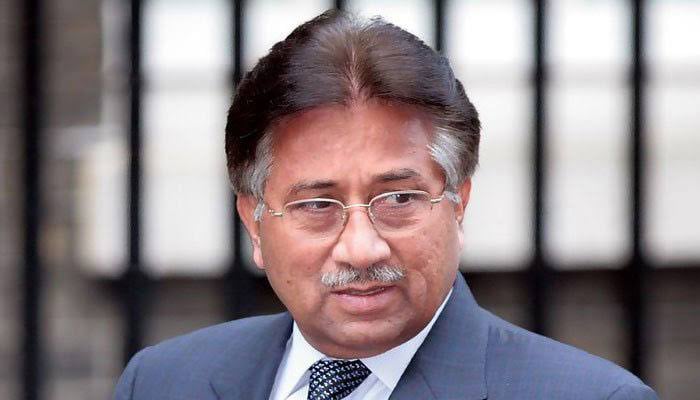CJP Khosa's principles ignored in Musharraf high treason verdict: AAG
He said that the verdict was discriminatory and "an expression of vengeance"
ISLAMABAD: The principles established by Chief Justice Khosa were set aside in the special court's verdict against General (retd) Pervez Musharraf in the high treason case, said Additional Attorney General Amir Rehman, on Friday.
The additional attorney general was speaking at the full court reference. He said that the verdict was discriminatory and "an expression of vengeance".
A special court, on Tuesday, handed the former military dictator the death sentence for abrogating the constitution and imposing a state of emergency on November 3, 2007. Paragraph 66 of the verdict--authored by Justice Waqar Seth--called on law enforcement agencies to arrest the former army chief and if he was found dead, drag his body to the D-Chowk in Islamabad and hang it for three days.
"Its [the verdict] implementation will be brutal, illegal and inhuman," he added.
He said that the verdict was against the norms of the criminal justice system and that Justice Waqar's conduct did not reflect that he was a senior judge.
"I say this with a heavy heart that Justice Khosa supported the decision when the detailed verdict had not been issued," he said.
Our fears regarding Musharraf treason verdict have proven true: DG ISPR
Director General Inter-Services Public Relations (ISPR) Major General Asif Ghafoor said on Thursday that the fears of the armed forces have "proven true" after the special court issued its detailed verdict on the high treason case against General (retd) Pervez Musharraf.
"The concerns expressed in response to the short verdict in the case against Musharraf have proven true today after the detailed verdict," Major General Ghafoor said as he addressed the press at General Headquarters.
DG ISPR said that the words used in the verdict were "beyond humanity, religion and civilised behaviour". Responding to sections of the verdict criticising the army for political interference, he further said that Pakistan Army was "a responsible institution" and its soldiers "had taken an oath to protect the country".
Major General Ghafoor said that for the armed forces, "the country comes first and the institution [of the army] later".
-
Security forces gun down 30 terrorists in multiple IBOs in KP: ISPR
-
MQM-P calls for new province in Sindh
-
US report validates Pakistan military edge over India: PM
-
Banned TTP poses serious threat to Pakistan security: UNSC panel
-
CM Afridi clarifies remarks on by-poll after ECP requests army deployment
-
Dubai sees 3.2m Pakistani passengers in 2025 as airport sets new milestone
-
Security forces kill 23 Indian proxy terrorists in KP's Kurram
-
Pakistan to construct island to boost oil exploration: report












